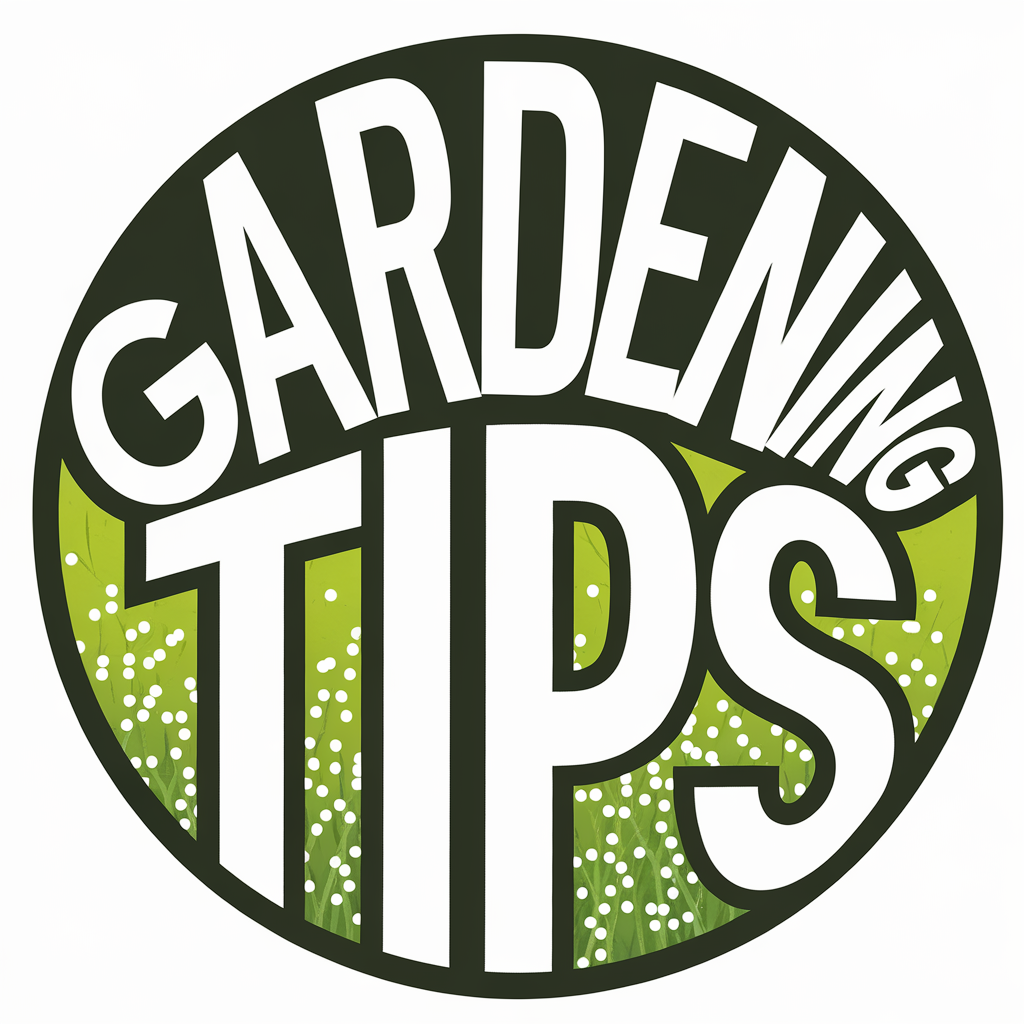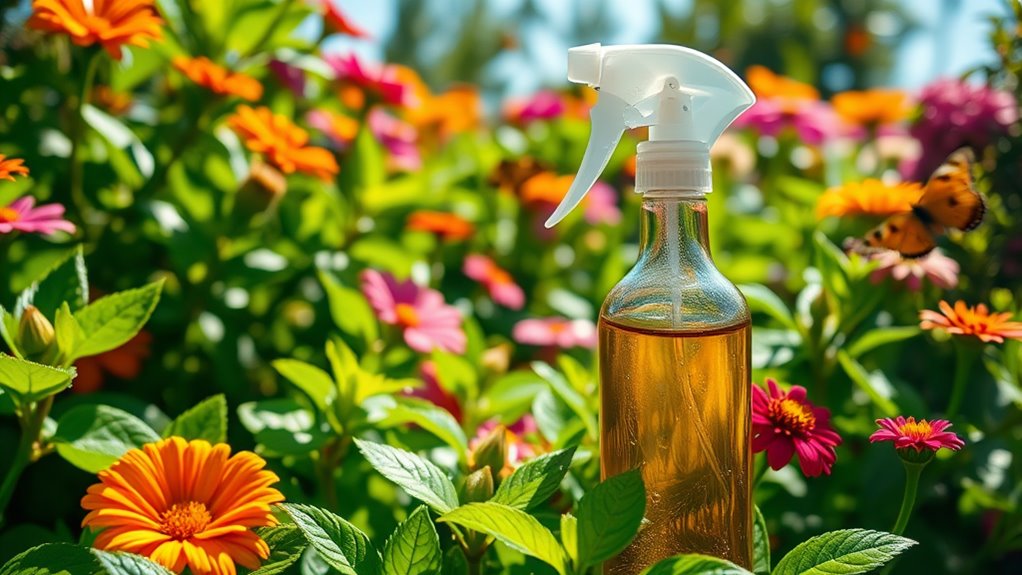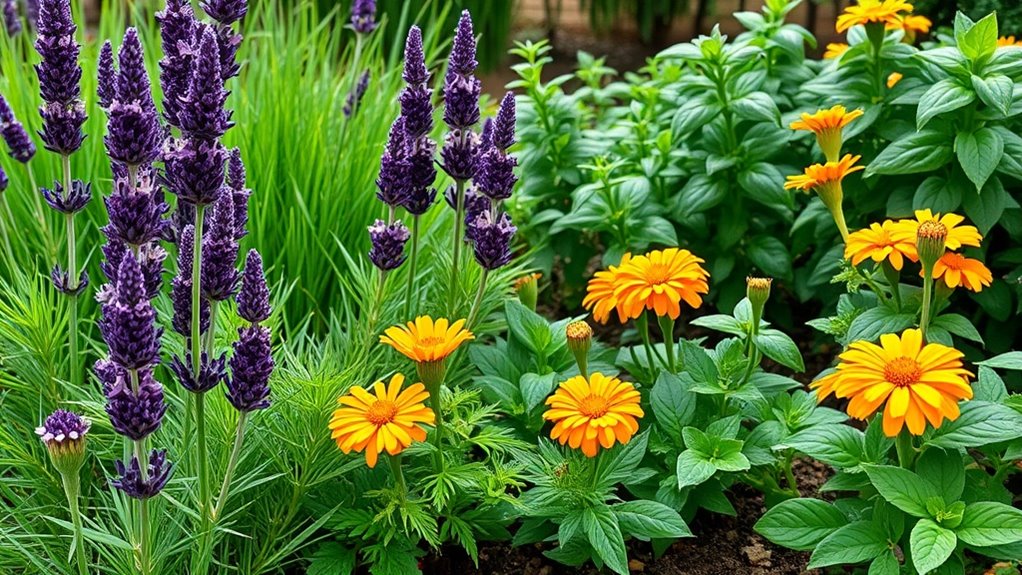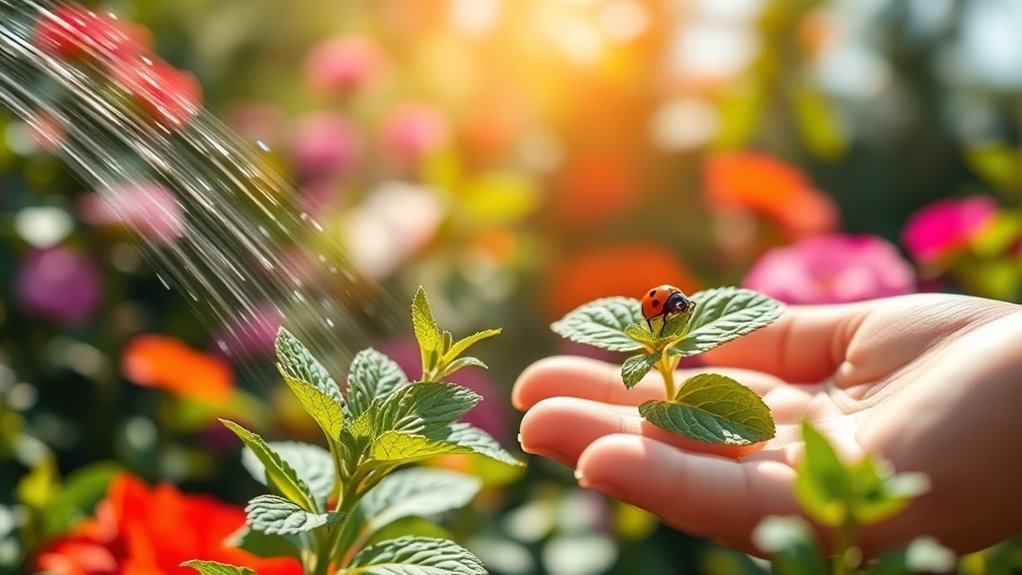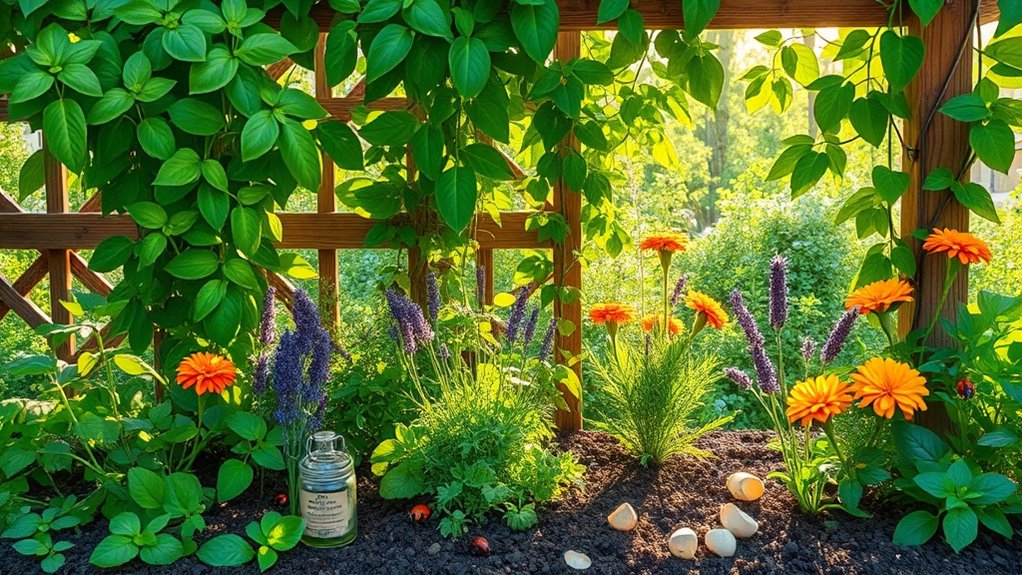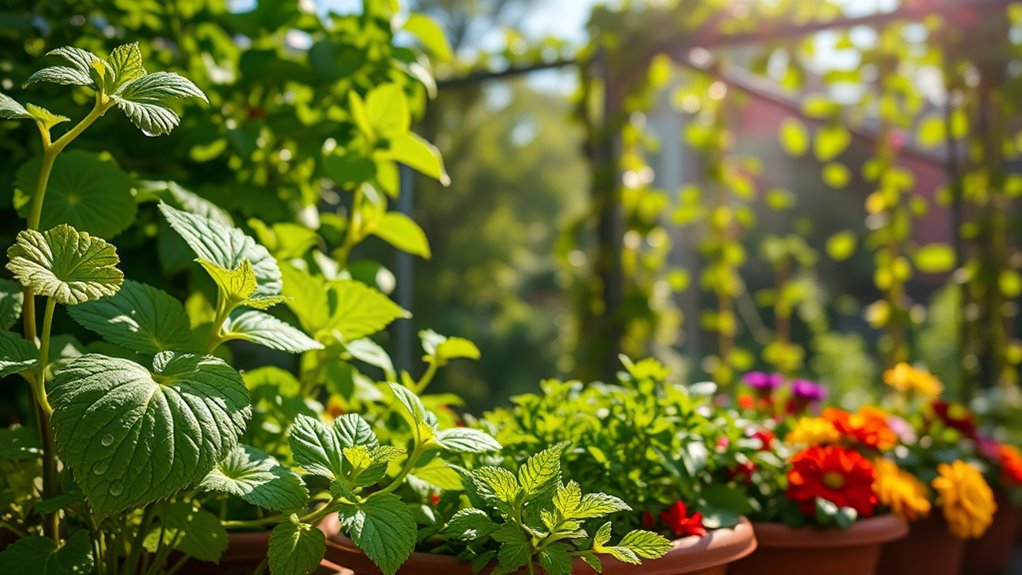This DIY Natural Pest Spray Saved My Garden
This DIY natural pest spray can truly save your garden. By using simple ingredients like neem oil, garlic, and Castile soap, you’ll effectively combat pests without harsh chemicals. Just mix them in a spray bottle and apply during cooler times to maximize effectiveness. You’ll protect beneficial insects and promote a healthier ecosystem while keeping your plants thriving. If you’ve got gardening in mind, there are more tips and strategies to enhance your results.
Understanding the Need for Natural Pest Control
Why should you consider natural pest control methods over traditional chemical treatments?
Using pest control DIY techniques allows you to manage pests effectively while minimizing harm to the environment and your health.
Chemical treatments often leave harmful residues, affecting not only pests but also beneficial insects, pets, and even your family.
By opting for natural solutions, you promote a healthier ecosystem and reduce chemical exposure.
Furthermore, DIY methods can be cost-effective and tailored to your specific needs, giving you greater control over the pest management process.
Embracing natural pest control is a practical choice for sustainable gardening and home maintenance. Additionally, many natural DIY pest sprays are made from readily available ingredients, making them an accessible option for gardeners looking to reduce their chemical footprint.
Ingredients for the DIY Pest Spray
Creating an effective DIY natural pest spray starts with selecting the right ingredients. Using a combination of essential oils, soaps, and natural elements can help target specific pests without harming your plants. Additionally, choosing natural pest sprays made from organic ingredients can enhance the health of your garden while keeping it pest-free.
| Ingredient | Purpose |
|---|---|
| Neem Oil | Disrupts pest life cycle |
| Castile Soap | Breaks down insect exoskeletons |
| Garlic | Repels many insects |
| Pepper (Cayenne) | Deters pests with heat |
Step-by-Step Recipe for the Pest Spray
Now that you have your ingredients ready, it’s time to put them together into an effective pest spray.
Start by mixing two cups of water with one tablespoon of dish soap in a spray bottle.
Next, add one cup of vinegar and stir gently to combine.
If you’re using essential oils, incorporate five drops of tea tree or peppermint oil for added potency.
Secure the spray bottle lid and shake it well to guarantee all ingredients blend thoroughly.
Label your spray for easy identification, and you’re all set!
This simple recipe harnesses natural ingredients to tackle pesky garden invaders effectively, as many gardeners have found natural pest remedies to be effective in their own gardens.
Application Techniques for Best Results
Here are some tips to enhance your results:
- Spray during cooler times: Early morning or late afternoon reduces evaporation.
- Target the undersides of leaves: Many pests hide there, so direct your spray effectively.
- Use a fine mist: This provides even coverage without overwhelming plants.
- Reapply after rain: Natural ingredients can wash away, so reapply as needed.
- Test on a small area first: Make sure your plants can tolerate the spray without adverse reactions.
Additionally, using natural ingredients can help create a healthy garden ecosystem, as they deter pests without harming beneficial insects.
Following these strategies will boost your pest control efforts.
Benefits of Using Natural Pest Sprays
Using natural pest sprays offers multiple advantages for your garden. They’re safe for beneficial insects, ensuring that the ecosystem remains balanced while effectively managing pests. Plus, these eco-friendly solutions aren’t only sustainable but also cost-effective, making them a smart choice for any gardener. Additionally, many natural remedies can be crafted from unconventional ingredients, allowing for unique and personalized pest control solutions.
Safe for Beneficial Insects
While many conventional pesticides pose a threat to beneficial insects, natural pest sprays offer a safer alternative that supports a healthy ecosystem in your garden.
By using these sprays, you can protect essential pollinators and predators without harming them.
Consider these benefits:
- Preserves pollinators like bees and butterflies
- Maintains natural pest control by protecting predatory insects
- Supports soil health through a balanced ecosystem
- Reduces chemical runoff that can damage nearby flora and fauna
- Enhances biodiversity, fostering a more resilient garden
Choosing natural options keeps your garden thriving and promotes a harmonious environment for all its inhabitants.
Eco-Friendly and Sustainable
Natural pest sprays not only protect beneficial insects but also align with eco-friendly and sustainable gardening practices. By using natural ingredients, you reduce chemical runoff, improving soil quality and water conservation. These sprays encourage biodiversity, fostering a balanced ecosystem in your garden.
| Benefit | Natural Pest Sprays | Chemical Sprays |
|---|---|---|
| Soil Health | Improves with natural use | Deteriorates soil quality |
| Water Conservation | Minimal runoff | High runoff risk |
| Biodiversity | Promotes diverse species | Harms beneficial insects |
| Safety for Pets & Kids | Non-toxic | Potentially harmful |
| Sustainable Practices | Supports eco-friendly methods | Often unsustainable |
Cost-Effective Garden Solution
A cost-effective garden solution can be found in DIY natural pest sprays, which not only save you money but also enhance the overall health of your garden.
By utilizing these sprays, you can enjoy several benefits:
- Reduced Costs: Create your own sprays with common household ingredients.
- Healthier Plants: Avoid harmful chemicals that may stunt growth.
- Environmentally Friendly: Protect pollinators and beneficial insects.
- Targeted Solutions: Customize sprays to tackle specific pests.
- Versatility: Use ingredients for multiple purposes, like fertilizing.
Switching to natural pest sprays not only benefits your wallet but also promotes a thriving garden ecosystem.
Tips for Maintaining a Healthy Garden
To maintain a healthy garden, focus on soil quality management, a consistent watering schedule, and the benefits of companion planting. Each of these factors plays a vital role in promoting plant health and resilience against pests. Additionally, incorporating specific plant pairings can help maximize crop yields and deter unwanted insects.
Soil Quality Management
How can you make sure your garden thrives year-round?
Focusing on soil quality is essential.
Healthy soil supports strong plants, so here are some practical tips:
- Test your soil pH regularly to maintain balance.
- Add organic matter like compost to improve nutrient content.
- Rotate crops annually to prevent nutrient depletion.
- Mulch to retain moisture and suppress weeds.
- Avoid over-tilling, which can disrupt soil structure.
Regular Watering Schedule
While maintaining a regular watering schedule may seem straightforward, it’s essential for keeping your garden healthy and vibrant. Consistency prevents drought stress and encourages strong root development. Aim for early morning or late evening watering to minimize evaporation.
| Watering Frequency | Ideal Time | Benefits |
|---|---|---|
| Daily | Early Morning | Promotes healthy growth |
| Every 2-3 days | Late Evening | Reduces weed growth |
| Once a week | Anytime | Deep root nourishment |
Adjust your schedule based on weather conditions and plant needs to maintain an ideal watering routine. Your garden will thrive with the right approach!
Companion Planting Benefits
Have you ever wondered how certain plants can thrive together in your garden?
That’s the magic of companion planting!
By strategically pairing plants, you can enhance growth, deter pests, and improve overall garden health.
Here are some key benefits:
- Pest control: Certain plants repel harmful insects.
- Nutrient sharing: Some plants provide essential nutrients to others.
- Improved pollination: Diverse flowers attract more pollinators.
- Soil health: Roots from different plants can aerate the soil effectively.
- Space efficiency: Taller plants can provide shade for smaller ones.
Embrace companion planting, and watch your garden flourish!
